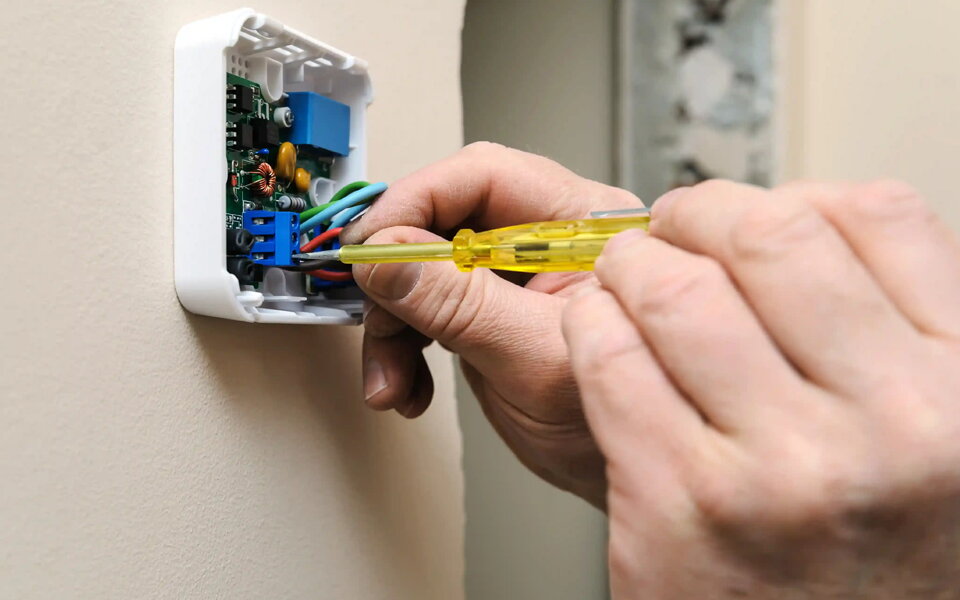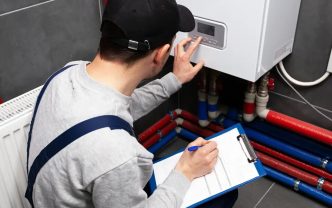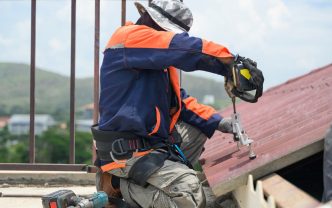Set the Stage: What a Great Heating Expert Looks Like
A good heater repair visit is like a movie scenario when the seasoned fixer enters, identifies the problem, and gently restores the space. When Orange County temperatures drop, you want that vitality. A technical specialist with a personal touch can diagnose quickly, explain clearly, price transparently, and stand behind the work. By knowing what to look for, you’ll spend less, stress less, and get your heat working when it counts.
Experience That Shows Up on Day One
Nothing beats time in the field. A technician who’s repaired hundreds of furnaces and heat pumps won’t waste yours. They’ll recognize the telltale signs—short cycling, uneven heating, mysterious noises—and zero in on root causes instead of swapping parts on a hunch. Ask how long they’ve worked on residential systems in Orange County, which brands and models they service, and what kinds of issues they handle most. A steady record with equipment like gas furnaces, ducted systems, and heat pumps is a green flag, especially in neighborhoods with older ductwork or coastal microclimates.
License, Insurance, and Local Know-How
Credentials aren’t red tape; they’re guardrails. In California, you’re looking for a state contractor’s license appropriate for heating work (often C‑20 for warm-air heating, ventilating, and air conditioning), along with proof of insurance and, if applicable, workers’ compensation. This protects your home, your wallet, and the people doing the work. Local knowledge matters too. A pro who regularly pulls permits, understands city inspection habits, and works within Orange County’s building standards will keep your project clean and compliant—especially if a repair edges into replacement territory.
Communication That Calms the Room
Great technicians explain. They’ll explain what they found, show you worn parts or test results, and explain repair alternatives in clear English. Before reaching for a wrench, know what’s urgent, what can wait, and what everything costs. Because your observations are crucial to a proper diagnosis, look for professionals that listen first—asking about symptoms, past repairs, filter changes, and thermostat behaviour. If you leave the conversation smarter and more in control, you have the proper individual.
Reliability You Can Set Your Clock By
The house is cold, so timeliness feels kind. Reliable pros keep appointments, offer ETA updates, and arrive prepared. They retain good work practices, stock common parts, and don’t disappear mid-job. Ask about urgent call response times, weekend or after-hours availability, and same-day service in your location. Trust is built on consistency; a professional who arrives and wraps on time is worth warming.
Pricing Clarity and Guarantees That Mean Something
Clarity always beats guessing. Solid providers discuss their pricing—flat-rate for specific repairs or time-and-materials—and provide written estimates before starting work. Understand labour, diagnostic, travel, and add-on prices. Guarantees matter too. Confident heating experts offer labour guarantees and part warranties. Repairs should not cost twice if they fail within the warranty period.
Reputation in the Wild: Reviews and Referrals
Online reviews and neighborhood recommendations tell you what sales copy can’t. You’re looking for consistent notes about fast response, honest assessments, clean work, and lasting results. Pay attention to how companies respond to critical reviews—professional, solution-focused replies are a good sign. Old-fashioned word of mouth counts too: ask neighbors, HOA groups, and local friends who they trust for heating repair in Orange County. If two or three names keep popping up, you’ve likely found your shortlist.
A Smart Diagnostic Approach (and Good Tools)
Top technologists start with questions and measurements, not conjecture. A step-by-step approach includes thermostat checks, filter and airflow inspection, electrical testing, gas pressure verification, and combustion safety and CO testing for gas furnaces. Professionals use manometers, multimeters, and leak detectors. A solid parts access person is also needed. Control board and inducer motor replacements are faster with good suppliers.
Safety First: Gas, Venting, and Air Quality
Safety should never be compromised by heat. Your gas system specialist should check venting, flame quality, leakage and carbon monoxide. Heat pumps should be checked for refrigerant and electrical safety. An informal discussion regarding detectors, airflow, and return location demonstrates they’re considering the full home, not just the equipment cabinet.
Choosing Between Repair and Replace
Sometimes the best “repair” is a thoughtful pivot. An honest pro will weigh age, condition, repair frequency, and energy costs against the price of a fix. If your system is newer and the issue is straightforward, repair away. If you’re facing major components on an aging unit, they’ll tell you when replacement delivers more comfort and lower operating costs long-term—and they’ll support either path with clear numbers.
Memberships and Long-Term Value
If you like what you see, ask about maintenance memberships. The right plan—done by a team you trust—can keep filters fresh, coils clean, and safety checks current, often with perks like priority scheduling and discounted repairs. Measured over a few seasons, those checkups can reduce emergency calls and flatten your budget surprises.
Red Flags You Don’t Ignore
A few signs it’s time to keep looking:
- No license or vague credentials.
- Sloppy estimates or pressure to decide “right now.”
- Reluctance to explain tests, results, or options.
- Cash-only demands or unusually low prices that don’t add up.
- No written warranty, or a “guarantee” that’s all sizzle, no detail.
How to Start the Shortlist
Make 3 calls. Check licence and insurance, emergency availability, diagnostic charge, warranty terms, and part turnaround with each company. Notice how clear, friendly, and straightforward the phone call is? That previews your door-to-door service. Choose one that makes you feel knowledgeable and valued, then let the pro bring the heat back with skill and care.
FAQ
Do I need a licensed contractor for heating repairs in California?
Yes. Hiring a properly licensed and insured contractor protects you legally and financially, and ensures the work meets state standards.
How fast should a heating repair company respond in an emergency?
Many offer same-day service, and some have after-hours support; ask about their emergency response window before you need it.
What brands do most pros service in Orange County?
Qualified techs handle a wide range of major brands and models, and the best bring universal diagnostic skills across systems.
Should I choose flat-rate pricing or time-and-materials?
Both can be fair; the key is transparent estimates and written approval before work begins so you know exactly what you’re paying for.
When is it smarter to replace instead of repair?
If your system is old, inefficient, and facing a costly fix, replacement can lower energy bills and reduce breakdowns over time.
Do repairs typically come with a warranty?
Reputable companies provide a written labor warranty and honor manufacturer warranties on parts used during the repair.
Will my repair require a permit?
Most standard repairs don’t, but replacements and certain major modifications often do; your contractor should advise and handle it.
What basic maintenance helps prevent future breakdowns?
Regular filter changes and scheduled professional tune-ups keep airflow strong, improve efficiency, and catch issues early.
Can a technician test for carbon monoxide during a furnace check?
Yes, CO testing is a standard safety step for gas furnaces and should be part of a thorough diagnostic visit.
How can I tell if a quote is fair?
Compare two to three written estimates that clearly itemize diagnostics, parts, labor, and warranties, and favor clarity over the lowest number.














